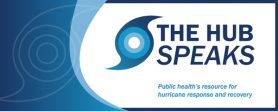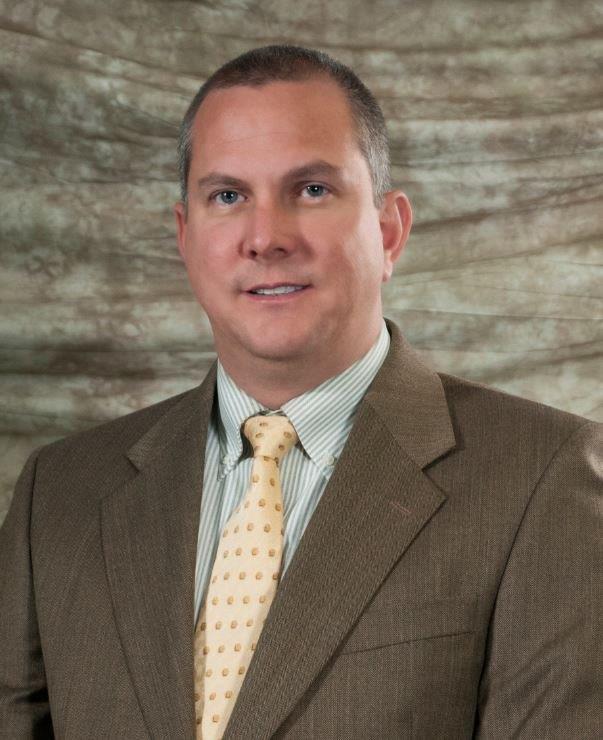Preparation for Pandemics, Tornadoes, and Hurricanes: An interview with Tim Hatch – Alabama Department of Public Health
- By: National Network of Public Health Institutes
- Date
We spoke with Tim Hatch, Deputy Director and Director of Logistics and Environmental Programs for Alabama Department of Public Health. He discusses the challenges of sheltering amidst the pandemic, how we have to think outside the box when responding to COVID-19, and more.
What makes Alabama a unique place to do this type of work?
Alabama is hurricane-prone because of our Gulf Coast counties. In the last ten years or so, Alabama has been known as the new tornado alley. People usually think of Oklahoma, Kansas, and Missouri as tornado alley. However, over the last ten years, there have been more tornadoes across the Southern States than there have been anywhere else. That’s unique in and of itself.
Alabama’s climate makes us prone to zoonotic diseases such as Zika, which is the new kid on the block. We have illnesses such as tick-borne encephalitis and others. While we do not have a significant risk for earthquakes, it is important to note that we are a part of the New Madrid Fault Line in the Northwest corner of the state.
The range of disasters we experience in Alabama is what makes Alabama unique.
Describe the response to the April 2020 tornadoes as it relates to the ongoing public health issue concerning COVID-19.
With this recent outbreak of severe weather, one of the biggest concerns was sheltering because we were being told to shelter at home and avoid congregate situations due to the spread of COVID-19. Our department’s position was that you’re imminently more at risk of injury or death from the tornado when the sirens go off. Seek shelter in these situations.
It’s a lesser of two evils situation; it’s important for people to seek shelter. When you analyze the number of people in the United States who have died of COVID-19 and then compare it to the number of people that can be injured by a storm, the risk of injury or death from a storm is more significant by ratio.
Disease transmission is always a risk we take when seeking shelter from a storm. However, inclement weather conditions are a far greater risk and with social distancing, face coverings, and good hygiene, much of that risk can be mitigated. When you seek shelter from a storm, please adhere to the general precautions. We all have become accustomed to social distancing and proper hygiene. Also, try to avoid touching your face, eyes, and mouth and wash your hands often with alcohol-based hand sanitizers.
Another issue we have been addressing is if we need to open mass care shelters like the American Red Cross does, which we assist with, or other medical needs shelters. Trying to keep people separated is going to be an issue when it comes to COVID-19. We’re very hopeful that as we ramp up hurricane season, we will be ramping down our risk of COVID-19. Look at what happened after Hurricane Katrina with the mega shelters .There’s no way to social distance. And even on a good day, the sanitation levels in mega shelters are concerning.
We’re headed right into hurricane season. How is your department and your team preparing for hurricane season amid COVID-19?
One of the nice things about being in the response community in Alabama is that we have an experienced and close-knit group. Our major state agencies and all of the emergency support functions are represented in our State Coordination group. Currently, we have daily calls to brief one another, mainly about COVID-19. Typically, we perform a tabletop exercise where we meet at the state emergency operations center and go through a scenario to prepare for hurricane season. This year, it will be slightly different because a majority of our partners are involved in COVID-19 response.
Since we are victims of circumstance and we’ve been involved in hurricane response so long, we know the expectations for each department. We’ve improved our process so that we are very efficient at assisting with the disaster segments of hurricane response.
What connection exists between hurricane response and environmental health, and how has COVID-19 affected your work?
Environmental health is essential to hurricane emergency response. We ensure the safety and sanitation of the people who are sheltered by ensuring that the shelter is clean and free from hazards. We check the food and we ensure available medication is safe. Additionally, beyond our shelter duties, we are one of the first groups of people to go out in communities to ensure that debris is being collected and disposed of properly. We make sure the water quality is safe. We make sure restaurants are reopened safely and quickly so that communities can get back to business as usual.
For COVID-19, environmental health practitioners have the training and the ability to understand community needs. Our environmental health practitioners have been utilized in numerous roles pertaining to quarantine orders. For example, we are looking at the amount of waste generated by hospitals because of the increased use of personal protective equipment.
We are also looking at how to deploy environmental health practitioners because of school closures. In many cases, children only had a meal at school. Through a partnership with the state department of education, we inspected food at meal sites to ensure their safety.
We have to think outside the box when responding to the COVID-19 disaster.
As communities are preparing to respond to dual disasters, what lessons learned or experiences do you have that can help them prepare?
It’s essential for environmental health and public health practitioners to understand the emergency management cycle and incident command processes and procedures. It is hard for environmental health practitioners to act as regulators. The hat we wear is one of compliance. If something is out of compliance it should be corrected immediately during disaster response. Our hat also turns into one of cooperation; we need to make sure we’re still upholding public health laws, rules, and regulations, while also ensuring a safe environment for our citizens.
On the other hand, we’re not there to regulate. When a disaster happens, we are community recovery. We try to get in there and make sure that the water and food are safe, and that debris is handled and picked up as it should be.
As we’re entering hurricane season, and still working on COVID-19 response, what encouragement can you offer to other people in the field?
I encourage all, but especially the younger generation of public health and environmental health practitioners to connect with their emergency management and public health preparedness office. Disaster response isn’t for everyone. Some people are much better at the documentation role or the administrative role aspects of response. They’re just as important as the boots on the ground out in the field. It’s a team effort to do this.
I also encourage folks to look at the articles and other publications that are going to be coming out. The National Environmental Health Association has a disaster and emergency preparedness track where folks can attend seminars and learn from the people who have survived on the response side. What are these lessons and how can we do better? The National Environmental Health Association is a huge asset for environmental health practitioners across the world. They’re the standard for environmental health education.
Environmental health is an integral part of any recovery effort because when something happens to people, they think, is my family okay? What am I going to eat? Where am I going to sleep? And, most of those concerns are environmental health functions. It’s vital to have those environmental health practitioners in your preparedness efforts as the subject matter experts in your community.
Tim Hatch has over 25 years of experience in environmental health. In his current role, he leads a team of over 50 environmental health professionals that cover each of Alabama’s 67 counties. He is a Registered Environmental Health Specialist and a member of the National Environmental Health Association.
How You Can Get Involved
To request training or to get more information about how the Hurricane Response Hub can help your organization improve its hurricane-related disaster-related health recovery efforts, visit https://nnphi.org/focus-areas-service/hurricane-response-hub/.
For more information on what NNPHI is doing to respond to COVID-19, visit here.
More Articles Related to The Hub Speaks
Learning Opportunities: Resources for Hurricane Readiness & Recovery (The Hub Speaks, June 2020)
The Intersection of Hurricane Season and COVID-19: Implications for Emergency Shelters
CDC Guidelines for General Population Disaster Shelters During the COVID-19 Pandemic


 Subscribe To Our Communications
Subscribe To Our Communications